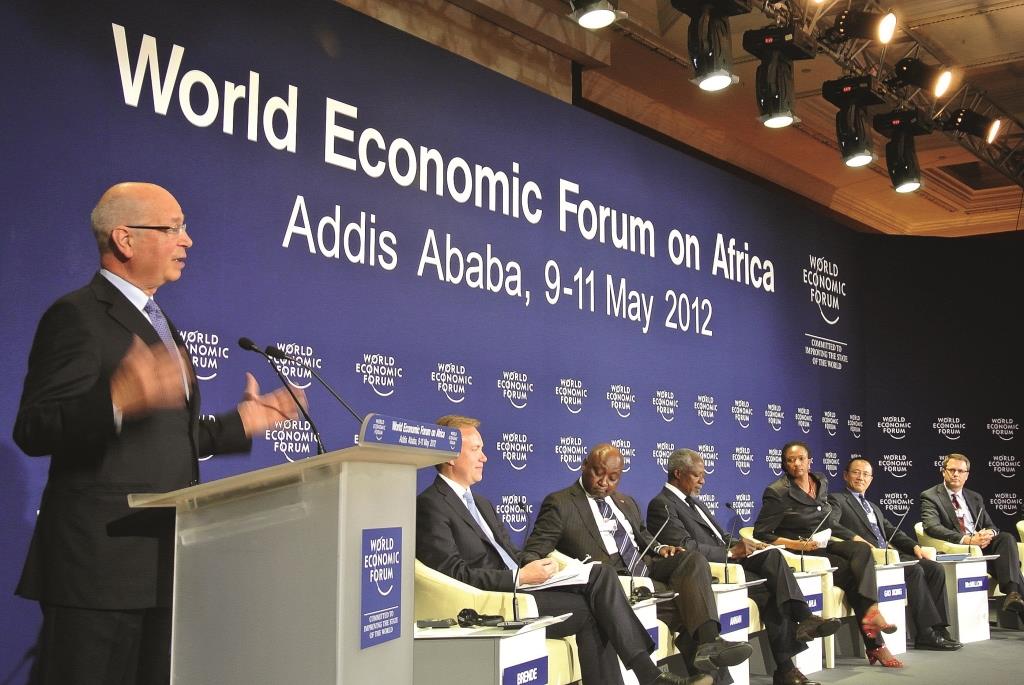The world descended on Africa’s political capital, Addis Ababa, Ethiopia on May 9. The queues were long and winding at Bole International Airport as global airlines landed one after the other, offloading hundreds of delegates bound for Africa’s most exclusive economic event.
Throughout the World Economic Forum on Africa, the streets were abuzz with vehicles and people going about their daily routine, oblivious to the occupation of their capital. This humming capital is the epitome of Ethiopia’s remarkable economic achievements in recent years.
Ethiopia is the second most-populous nation in sub-Saharan Africa with a population of more than 80 million people. It is also one of the fastest growing economies on the continent. The International Monetary Fund (IMF) expects growth at 5.0% and 5.5% in 2012 and 2013 respectively. This is a far cry from growth prospects in Europe and the rest of the developed world. Most Eurozone economies are either in recession or teetering on the brink.

The skyline over Addis Ababa is full of swinging construction cranes. A delegate, who had worked in Addis Ababa since the late nineties, told of his surprise at the building and economic progress since he was last in the country.
Rain and dark clouds hung over the capital for most of the conference, but this didn’t dampen the enthusiasm as delegates exchanged business cards in the hope of new business opportunities. Almost every conversation talked of how the fast growing continent of Africa was the place to be.
“‘It is a tremendous time for Africa where Africa is coming to the world, and the world to Africa,” says Josette Sheeran, vice-chairman and member of the Managing Board, World Economic Forum, speaking to CNBC Africa on the eve of the forum.
Sheeran, in her remarks at the opening plenary session, said Africa was in an era of the hand shake with people banding together to galvanize the continent’s transformation.
The discussions were wide and varied, ranging from innovation and technology, to social and gender issues. Several themes were pervasive throughout the three days—among them infrastructural development, regional trade, leadership and governance.
Infrastructure development was identified as the biggest impediment, bar none, to growth in Africa. Donald Kaberuka, president of the African Development Bank, talked of a recent trip to an African capital. To his dismay, this particular city of a million people had water infrastructure to cater for a mere 17,000 people.
This story brings to light Africa’s gaping infrastructure hole. Delegates at the forum were unanimous. Africa needs to invest heavily in roads, ports, railway lines and power stations to remove bottlenecks and promote efficiency in the economy. Sufficient infrastructure will reduce the cost of doing business on the continent dramatically, which will in turn spur investment.
Many African governments have taken heed. Governments across the continent are spending billions of dollars on infrastructure. In February, South Africa, Africa’s biggest economy and by far the most advanced in terms of infrastructure, announced a $100 billion capital expenditure program over the next three years.
The forum also heard Africa’s global and regional trade was at risk through uncertainty created by the Eurozone sovereign debt crisis. Delegates were concerned about low intra-Africa trade. Intra-Africa trade is only about 10% compared to 70% in the Eurozone; 52% in Asia; 50% in North America and 26% in South America.
Low intra-regional trade is a missed opportunity for growth and development for the continent. Pascal Lamy, director general of the World Trade Organisation, blamed this low intra-regional trade on poor infrastructure, inefficient border procedures, regulatory discrepancies and insufficient trade finance.

“The issue of boosting intra-African trade is not so much the diagnosis on what needs to be done, but on how to do it.” He added that “we know that the necessary initiatives have to happen at the regional level. Regional organizations have to address these problems one by one. The key to removing these bottlenecks lies in the political energy of regional leaders to do it,” says Lamy.
Over the last decade, six of the 10 fastest growing economies in the world were African. Part of Africa’s stellar growth during this period has been partly attributed to good leadership and governance. Kofi Annan, chairman of the Africa Progress Panel, praised the continent’s leadership and governance standards. He was confident that over the next decade Africa’s progress will continue.
Annan stressed the need for public policy debate which, he rued, was practically non-existent across the continent. He lamented that as much as there is democracy there is no engagement between governments and their citizenry. As such there is no policy consensus in nations which means that at each change of government, every five or 10 years, there is a change in policy. He said that lack of policy debate not only promotes myopic policies but also policy discontinuity. This limits consensus and nation building on the continent, ultimately putting a cap on economic growth and development.
Gao Xiqing, president and vice chairman of China Investment Corporation, hit the nail on the head when he referred to a quote by Chairman Mao referring to China’s poverty.
“This may seem a bad thing, but in reality it is a good thing. Poverty gives rise to the desire for changes the desire for action and the desire for revolution. On a blank sheet of paper free from any mark, the freshest and most beautiful characters can be written; the freshest and most beautiful pictures can be painted,” he says.
Africa, like China then, is also fortunate enough to have ‘a blank sheet free from any mark’. It is Africa’s opportunity given its many desires to rise and produce a unique, beautiful and heavenly masterpiece in the form of inclusive, strong and sustainable economic growth to lift Africans from poverty.
